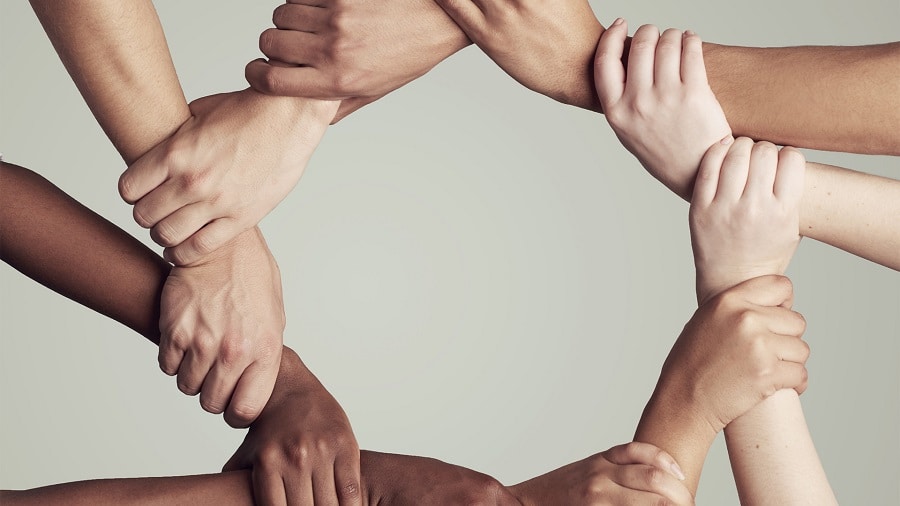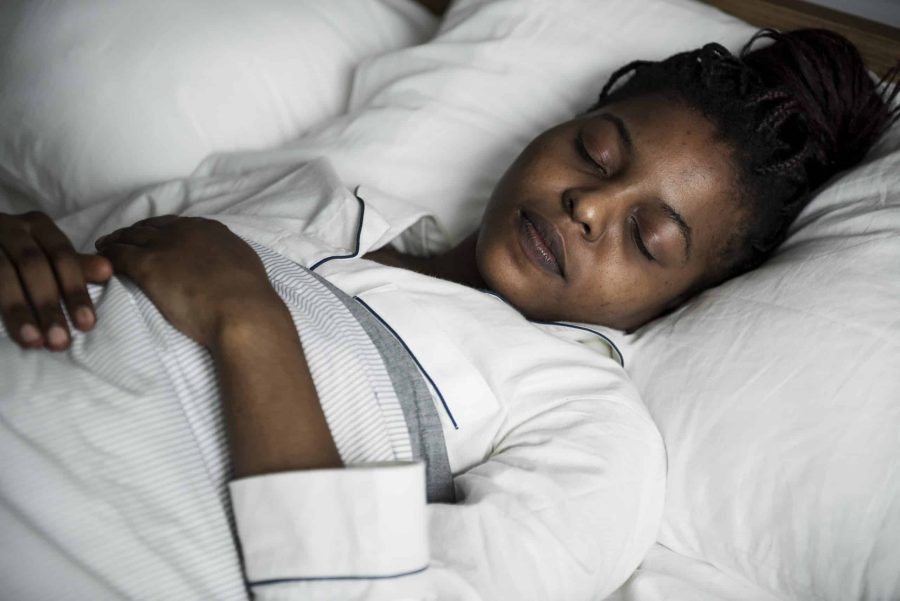
Most of us have a favorite pair of jeans, often worn to a certain fit and softness customized to our body. I don’t even like to wash my favorite jeans for fear that they will lose that perfect shape and feel or fade to a hue that is not quite perfect either. These are the jeans that I place in a plastic baggie (reused, of course) and keep in the freezer between washes, keeping them sanitized and body-molded in that just right way, which happens to be a hot tip for saving time, water, and energy.
Adam Taubenfligel’s favorite pair of jeans is the world’s first plastic-free stretch denim jeans designed for his eco-conscious brand Triarchy. These jeans give you the comfort of stretch without having to wear plastic. Your body gets full mobility, and your skin gets full breathability. They were made without wasting the 2,900 gallons of water used to make just one pair of jeans through traditional manufacturing.
Siblings Adam, Ania, and Mark Taubenfligel co-founded Triarchy in 2011 in Canada, with a mission to “conserve our planet’s most important resource by reducing the massive water consumption of our planet’s most beloved piece of clothing, jeans.” The immense amount of water used and wasted by other manufacturers results from the dyeing, washing, and finishing processes used to layer on aesthetically pleasing effects like fading, whiskering, and ripping that different styles and change trends. Remember when you only wanted to wear dark denim washes?
And it is not only the brand’s track record of ethical and sustainable manufacturing that makes this brand special. ziggie’s jean connoisseurs are huge fans of how comfortable and snap-back stretchy the women’s skinny jeans are, with no bagging at the knees and waist and along inseam for longer legs. Taubenfligel explains that “vintage optics” are at the heart of his designs for Triarchy. His goal is to bring you the most authentic-looking pair of jeans in the most sustainable way possible, using far less water and no toxic chemicals to deliver a vintage-looking pair of jeans with the least impact on the environment.
After a long career in fashion retail, I can attest to how complex designing a great-fitting pair of jeans is. This complexity is what gave birth to the whole designer denim trend in the early aughts. And even though Levi’s 501’s and other 90’s style moments have taken over everyone’s Instagram accounts, the legacy of great fit, finish and feel created by “premium denim” designers like Taubenfligel continues to set the bar in the industry.
Environmental Impact of Traditional Denim Manufacturing
Every pair of jeans you have ever owned starts as dark blue raw denim. It takes a lot of water to get a pair of jeans down into the lighter blue colors that are so on-trend now and are synonymous with that authentically worn-in look. It also takes a large amount of water to grow the cotton used in denim, making denim the worst offender in the fashion industry when it comes to water consumption.
Every pair of jeans made traditionally uses 2,900 gallons of water in manufacturing. To give you some context, that would fill 10,977 1L water bottles. Or 70 Bathtubs full of water. The water in an average residential swimming pool would make just under 8 pairs of jeans through conventional methods.
Taugbenfligel also points out that traditional manufacturing can also lead to the dumping of toxic wastewater into water systems that feed wildlife and impact the humans that live near these dumping sites. Scientists also trace air pollution from abrasives, chemicals, and cotton dust back to denim production.
Next Level Upcycling and Recycling
In response to the issues he saw in the industry, Taubenfligel and the Triarchy team decided in 2016 to halt production in LA and begin manufacturing out of world-class facilities in Mexico City and now in Istanbul, which reduces the carbon footprint for the brand since their fabrics are sourced in Italy. Taugbenfligel states that “Our factory in Istanbul is the most progressive we have found when it comes to sustainable production for denim,” noting their ability to use ozone, e-flow, and laser technologies to wash their denim down to the array of hues consumers expect.
In fact, their production process uses biomimetic wash processes that take their inspiration from nature, allowing them to eliminate using excess water to wash jeans down to a lighter color. For example, the ozone process takes air from the atmosphere and transforms it into ozone with state-of-the-art machinery. Ozone particles are then released inside the tumbler, getting the bleaching effect without bleach and other harmful chemicals. Keeping Triarchy jeans natural and toxic-free. They also use nanobubbles and e-flow technology to limit waste and use of chemicals in the enzyme washing process and have replaced the manual and often harmful to humans stone-washing process with laser technologies that allow Taubenfligel to add details and distressing to Triarchy styles without using toxic sprays and creating air-polluting dust.
Also, Triarchy women’s denim is made using certified organic cotton, Tencel, and natural rubber. Tencel from processed wood fiber from eucalyptus trees uses 85% less water than cotton to grow and process and is manufactured using 99% renewable energy. Organic cotton eliminates the use of toxic pesticides and fertilizers in farming, preventing contamination through our skin and groundwater, thus making drinking water clean and safe. It has been found that the impact of water pollution from organic cotton production is 98% less compared to that of conventional cotton production. And the brand’s latest product innovation, bio-stretch or Plastic-Free Denim, replaces plastics used to make denim stretchy with natural rubber. The organic cotton used in Triarchy’s jeans is wrapped around a biodegradable natural rubber core, taking less than 1 year to decompose naturally, compared to the 20-200 years it takes regular stretch denim to decompose.
The brand even uses recycled sheet metal for its buttons and recycled paper and fibers for its labels. This attention to detail and next-level commitment to sustainable design has helped the brand save over 1 million gallons of water to date, as well as millions of hours of energy.
Taubenfligel clarifies that Triarchy exists to bring customers the best pair of jeans possible, in every sense of the word best. He also shares that “We only work with people who share the same vision and understanding of sustainability as us, and this is what allows us to make perfect denim.” ziggie is proud to be one of those partners.


